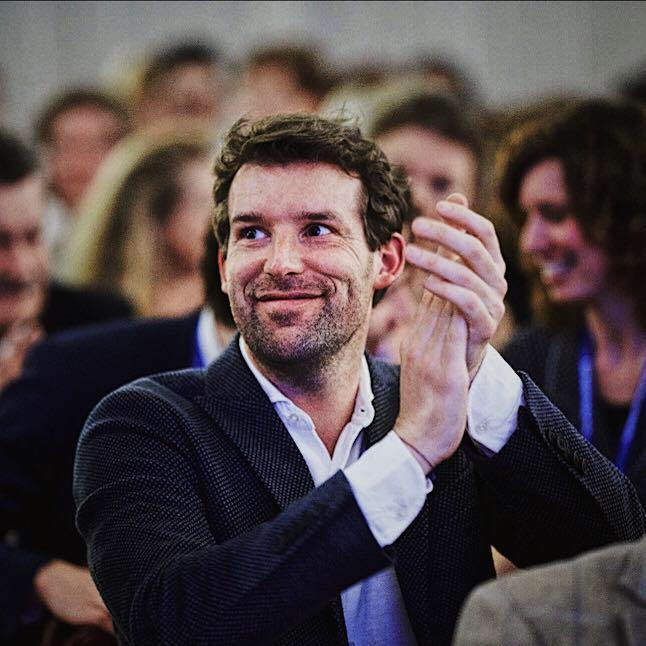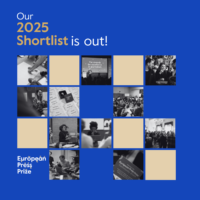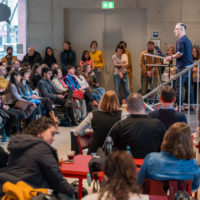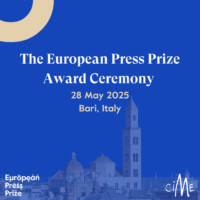Looking for the next winners of the European Press Prize!
Interview with Thomas van Neerbos — Director of the European Press Prize
With just a week to go before the submission deadline, here’s a look behind the scenes at The European Press Prize. From the European Press Prize headquarters: debate centre De Balie, director Thomas van Neerbos urges journalists from all over Europe and all backgrounds to send in their best work. Don’t just send in your own work, van Neerbos notes, it is also possible to nominate work of others. What journalistic work from previous laureates did you find particularly interesting?
I love work that is more than ‘doing’ journalism right (like a very good investigation or well-crafted opinion piece): work that helps journalism progress as a whole. Work using new systems that can be copied in other countries, so that it’s effects are endless. So I want to mention Bureau Local (2018), Maldito Bulo (2018), Bellincat (2017&2018) and Null CTRL (2014) – all of them using methods that can be taught and copied anywhere.
One of my personal favourites over the years has been Those who have been raped raise your hand, by Marion Quillard for Revue XXI in France. She shows the ‘industry’ behind rape-victims in Congo. Humanitarian organisations searching towns for the biggest number of victims in order to get bigger budgets, to find more victims, in a never ending loop where the victims themselves do not profit at all. What Quillard does is show the story behind the ones we normally get told by these organisations and other media. It shows that those stories are part of an industry themselves, paid for by our horror and attention.
What are you hoping to find this entry period that you haven’t seen before?
We as a ‘European’ prize always like to see international collaboration. Collaboration is the only way for journalists to take on huge companies and conspiracies. But I am proud to say we have seen a lot of those, from the Panama Papers and the Luxembourg Leaks to The Migrants & Malta Files to all the ‘laundromats’ of the OCCRP. Well written stories that show a world beyond our own. So what I am hoping to find is the ‘back-yard’ stories from far away, the ones that don’t find an international audience by themselves. Like The Fear-Sick Ward by Justina Kopynska for Gazeta Wyborcza – showing the incredible cruelty by the head of a children’s hospital.
“Well written stories that show a world beyond our own.”
What are the difficulties in achieving a diverse range of entries?
We are trying very hard to be a truly European organisation, open and inviting to all the people of the 47 countries of the European Council. But that is easier said than done. Our website, for instance, is in English. People can enter work in every language (we translate it for our Preparatory Committee), but they need to find us first.
In every country journalist use different means of communication, so we rely on our ambassadors (our laureates, our network and well-wishers) to spread the word to the right people in every country. So anybody who reads this: your favourite journalist might not know she or he is actually that good or that they can enter their work right now (deadline 14th of December). So tell them! Or nominate them by submitting their work yourself.
This option was created two years ago because good journalists more and more often needed to be careful sharing information, needed to hide from the people they wrote about (sometimes their own governments) or ended up in jail, or worse. So we created the option to nominate people for our awards. So if your colleague, friend or partner is in jail, in hiding or otherwise unable to send in work: do it for them! Make sure important work finds the international audience it deserves and enter it here.






